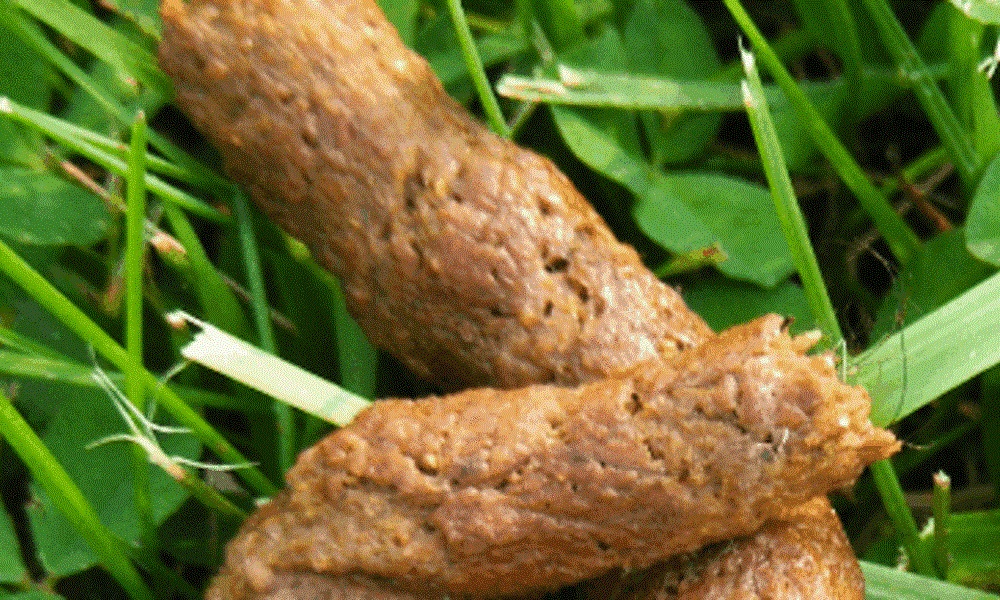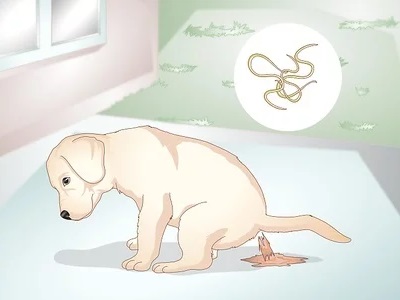Finding the worms which are crawling in the dog poops is a shocking thing that can surprise you. Some pet owners feel uneasy and disturbed after observing it, especially for the first-timers. However, you do not get hyper. This is because all dogs get worms in their poop at a specific point in their life. There are numerous types of worms and their treatment too.
Most pet owners think that their dogs could not get the worms. However, they cannot deny that each dog has the risk of getting worms. It doesn’t matter where the dog lives or how much time they spend in the backyard or outside. You may think that you do not see any worm in your dog’s poop, so they do not have any.
However, numerous worms are invisible to the human eye. When you take your pup to the vet, then he will perform some particular test. Moreover, he will also check the sample with the help of a microscope for checking the worms.
As a dog owner, you should know about dog worms and their symptoms. This article explicates the information about the types, symptoms, and diagnosis of worms.
What are the Symptoms of Dogs with Worms?
Although it is not easy to observe dog worms, there are symptoms that you can spot. If you do not have any idea about the worms, then you can consult your vet. He will examine your dog and find the problems if the dog has any. You can take your dog for the regular vet check-up.
With the regular check-up, there is a chance that the vet can find any health problem in your dog. Due to it, you can resolve the issue at an early stage or before it becomes severe. However, there are several symptoms of the dogs which have worms. What you will need to do is check for these signs.
Here is the list of some symptoms which are associated with the dog which has worms.
- The dog worms either in the pet’s feces, on the bottom, or in the vomit.
- Diarrhea or vomiting
- Depression and Weakness
- Weight loss even the dog has a good appetite.
- The abnormally swollen stomach
- Loss of appetite
- Coughing and problems related to bleeding
These are some symptoms. If you find any signs, then take them to the vet. He will guide you effectively and give the proper prescription.
Common Worms in Dog’s Poop
There are various worms that your dog may have. Some of the worms have multiple symptoms. Here is the list of some common kinds of worms.
Roundworms
- The puppies get these worms from the milk of their mother.
- They can also be infected by these worms from eating the soil.
- These kinds of worms can be noticed as spaghetti-like shapes in their feces.
Tapeworms
- Your dog can be suffering from these worms either by fleas or by the infected carcasses.
- You can find the traces in your dog in the feces or on the bottom of the dog. They appear like grains of rice.
Hookworms and Whipworms
- These worms are transmitted in the dogs via the mother’s milk or environment.
Lungworms
- These kinds of worms are a little bit different. These live in the blood vessels of dogs and affect the lungs.
- They suffer from this worm by eating the snails and slugs.
Heartworms
- These are the more worrisome and preventable worms in the dogs.
- These worms infect them via mosquitoes.
- The heartworms are grown and multiply in the heart. It can cause severe lung disease.
These are some types of worms. If you are a dog owner, then you should know about it.
How to Diagnose, Treat, and Prevent Worms from the Dog’s Body?
Diagnose
Some of the worms, like tapeworms, can be seen in the stool of a dog. On the other side, some worms are diagnosed by microscopic examination. If a dog develops any of the above-listed symptoms, then you should consult a vet. He will ask to take the stool sample.
With the help of a stool sample, the vet will diagnose the worms. If you do not find any symptoms, then taking the stool sample to the vet will be wise. By the blood samples, the heartworms can be detected. On the other side, in some cases, an echocardiogram, ultrasound, or radiograph is needed.
Roundworms
The treatment of roundworms requires multiple oral doses of deworming medication. It kills the worms in the intestinal tract. The repeated doses of deworming will kill the newly develop worms.
Hookworms
The treatment of Hookworms and roundworms is quite similar. The dewormer can be capable of killing the worms in the intestinal tract.
Whipworms
Whipworm treatment is similar to roundworms and hookworms. Multiple doses of the specific deworming medication are required for the treatment. In addition to it, the veterinarian will give the proper remedy.
Tapeworms
This treatment consists of one or extra doses of particular deworming medication. Generally over the counter, these are not effective. The vet will provide the right and best medication. The tapeworms are transmitted through the fleas. The best way to prevent this is to eradicate fleas.
List of Steps for Preventing the Dog Worms
If you can use the monthly dewormer, then it can offer protection against heartworms. Some of the parasites have a life cycle of between three to four weeks. If you give the medication properly, then your dog can get rid of these worms.
If you give the dewormer on the monthly-basis to the pregnant dog, it will avoid transmission to the offspring. There are several preventive measures that you can take to prevent dog worms. Here is the list of some actions which reduce the worms risk in your dog.
- Avoid visiting dog parks: It is a fact that most dogs spend the majority of their time in dog parks. It can become the reason for exposing worm eggs in the gardens. So, do not take your dogs to the dog parks.
- Clean up after your pet: When the pets are dewormed, then they can become reinfested. Henceforth, the prevention of your dogs from worms is quite essential. What you need to do is remove the feces from the yard.
- Give the preference to flea and tick prevention: In order to avoid tapeworms, flea control is essential. Few preventive medications can help control the specific kinds of intestinal worms.
- Do not let your pup chase the wildlife: Dogs that hunt rodents and other animals have a high risk of worms.
These are some ways by which you can apply to prevent your dog from worms.
Some Tips to Keep Your Dog Worm-Free
No doubt, dogs like to explore the environment with the mouth. They want to eat, lick and taste each thing. They eat the rocks, bugs, and other animals. Some worms can be transmitted via the mother to her puppies. On the other hand, a mosquito bite can lead to heartworm.
You can use routine prevention methods to keep your dog away from the worm. Here is the list of some ways to protect your pup from worm infestation.
- Deworming: The majority of dogs are going through deworming as a puppy or when it is adopted. Either it is in the form of oral medication or injections, it will kill the worms.
- Routine Check-ups: It is essential that you cannot compromise with the routine check-ups of your pup. It would help if you took your dog for a check-up yearly. The vet will check the infestations. He will take the stool sample to detect the worms. In addition to it, a blood test is required for detecting heartworm.
- Routine Prevention: You can prefer the parasite control product per month. Choose that product that your vet approves. It is an excellent and best method to prevent the dogs from worms.
- Keep the environment clean: You can clean the environment by picking up the dog feces. It is worthy of doing the stool check in the yard. Due to it, you will be able to prevent transmission.
These are some practical ways which keep your dog away from the worms.
Conclusion
In the end, you can quickly implement some methods to keep your dog away from the worms. In addition to it, you can use the ways mentioned above too. If the worm infects your dog, then take the vet’s advice. In addition to it, he will guide you effectively and give you the medication.
It is not a severe problem that you think. It can be prevented by using the right methods and proper medication. Take the guidance from your vet and prefer the routine check-up. You must have knowledge about the kinds and treatments. When you observe the symptoms, then do not delay. Take the advice from a vet.


